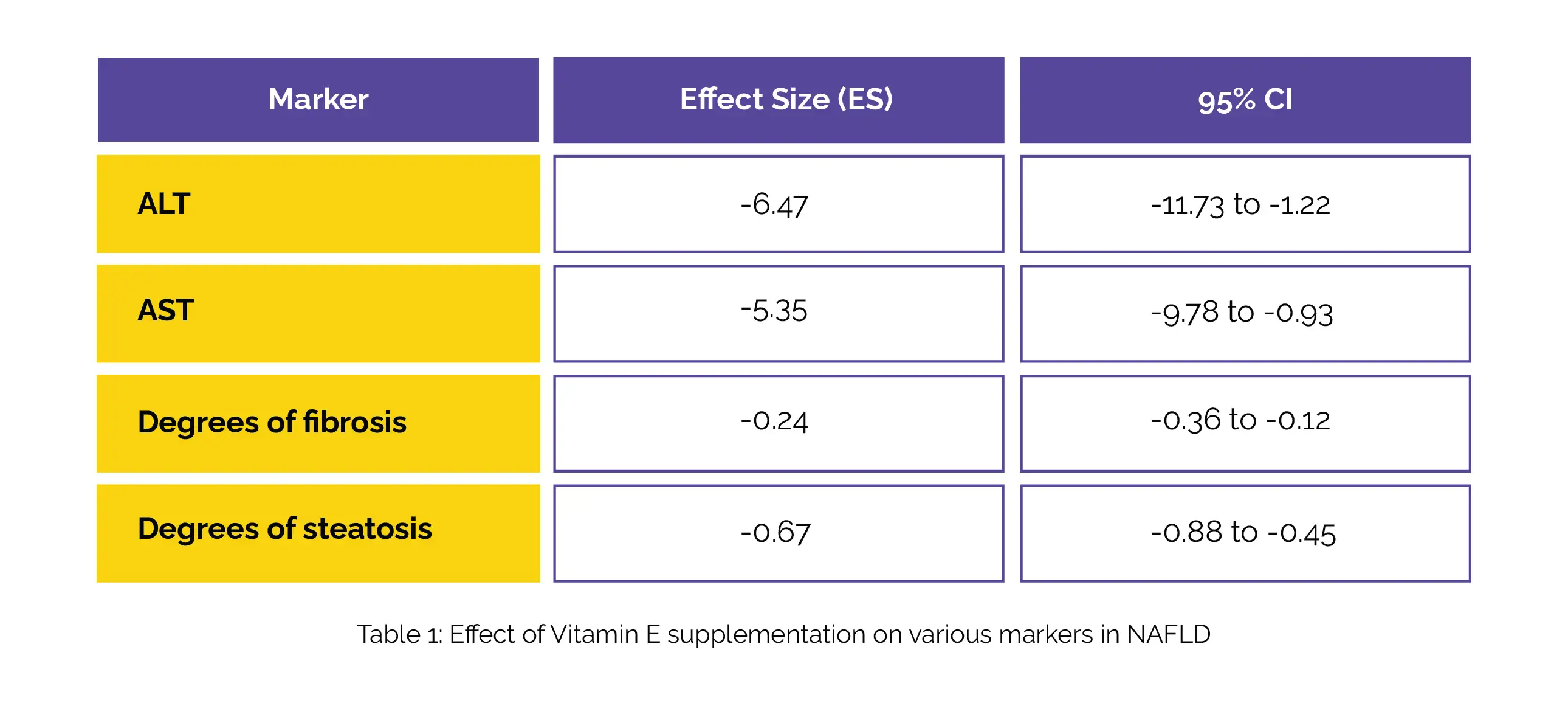Categories
Change Password!
Reset Password!


The use of Vitamin E in NAFLD patients is associated with improvements in ALT, AST, fibrosis, and steatosis.
A recent umbrella review of meta-analyses on randomized controlled trials suggest that Vitamin E administration holds promise in improving key nonalcoholic fatty liver disease (NAFLD) markers, such as alanine aminotransferase (ALT), aspartate aminotransferase (AST), fibrosis, and steatosis.
Fibrosis scores exhibited remarkable reductions when Vitamin E was administered at doses exceeding 600 IU/day or when treatment was sustained for a minimum of 12 months.
The primary objective was to clarify the impact of Vitamin E use on various parameters, including gamma-glutamyl transferase (GGT), ALT, AST, as well as the degrees of steatosis and fibrosis in NAFLD-affected patients. To achieve this, the research team meticulously explored databases like Web of Science, EMBASE, PubMed, SCOPUS, and MEDLINE, focusing on articles published until June 2023. Utilizing a random-effects model, the overall effect size (ES) was calculated along with confidence intervals (CI).
Six meta-analyses were scrutinized in this umbrella review, and their collective findings illustrated a promising picture. Through the synthesis of ES data using the random-effects model, it was determined that Vitamin E supplementation had a significant positive effect on several NAFLD indicators. Notably, it led to a drop in ALT, AST, degrees of fibrosis, and steatosis in patients suffering from NAFLD, as shown in Table 1:

However, it appeared to have no discernible effect on GGT levels. Digging deeper, subgroup analyses unveiled some intriguing patterns. The reduction in fibrosis scores was notably pronounced when Vitamin E dosage exceeded 600 IU/day (ES −0.25, 95% CI −0.41 to −0.10) and when the treatment duration extended to at least 12 months (ES −0.24, 95% CI −0.37 to −0.12). In conclusion, Vitamin E supplementation shows potential benefits in NAFLD.
Journal of Digestive Diseases
Vitamin E supplementation in the treatment on nonalcoholic fatty liver disease (NAFLD): Evidence from an umbrella review of meta-analysis on randomized controlled trials
Ming Yue Wang et al.
Comments (0)